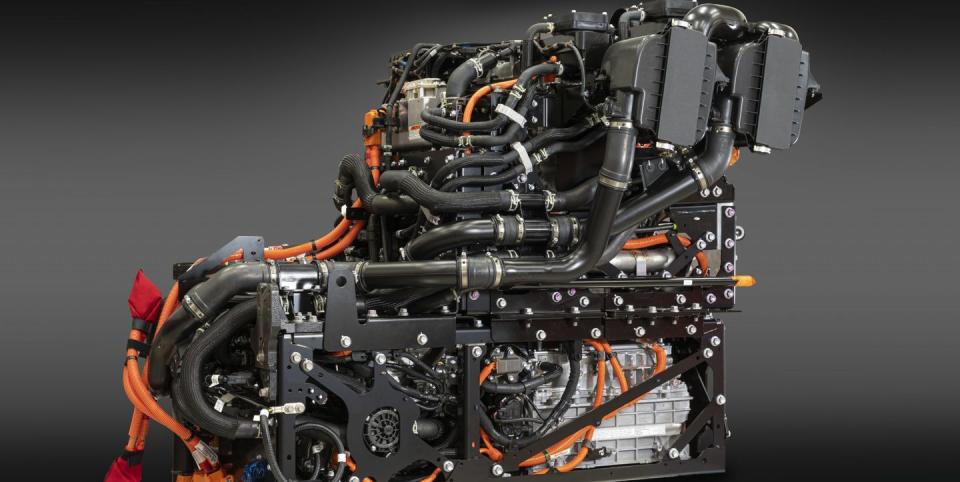Semi-Trucks in California Can Now Run on Hydrogen Thanks to Toyota

Toyota has just announced that its heavy-duty hydrogen fuel cell powertrain kit has officially received an Executive Order from the California Air Resources Board (CARB). That means owners and operators of Class 8 vehicles can start replacing their dirty diesel engines with the new Zero Emissions Powertrain (ZEP).
Toyota’s commitment to hydrogen fuel cell technology is nothing new, having started its fuel-cell EV program in the early 1990s. This particular project aimed at the HD market started back in 2017 under the codename Project Portal. The kit itself comprises fuel cell stacks, battery packs, electric motors, a transmission, as well as the requisite hydrogen fuel tanks. This set-up is not to be confused with the one found in Toyota’s hydrogen combustion engine projects, like its recent hydrogen-burning AE86 build. Toyota worked alongside the team at Kenworth to develop the swap kit using the FCEV powertrain, building 10 Kenworth T680s with the hydrogen equipment installed. These trucks were sent to real customers for some practical development testing, hauling cargo between the Ports of Los Angeles and Long Beach and the LA Basin. Infrastructure and refueling support for the prototype semis was provided by Shell.
While a hydrogen fuel cell kit will certainly help companies reach their stated emissions targets in California, the package also comes with some financial benefits. More specifically, qualified OEMs may also be eligible for CARB’s Hybrid and Zero-Emission Truck and Bus Voucher Incentive Project (HVIP), the Port of Los Angeles and Long Beach Clean Truck Fund (CTF), as well as some federal incentives related to zero-emission vehicles.
Now that CARB approval has been secured, Toyota will begin production of the ZEP kit at its Kentucky manufacturing facility. The kit provides an opportunity for companies to try hydrogen fuel cells without having to purchase an entirely new vehicle, which should ultimately help more businesses afford the transition to zero emissions. Depending on how those experiences go, hydrogen fuel cells might finally be able to solidify their role in the HD market moving forward.
You Might Also Like

 Yahoo Autos
Yahoo Autos 